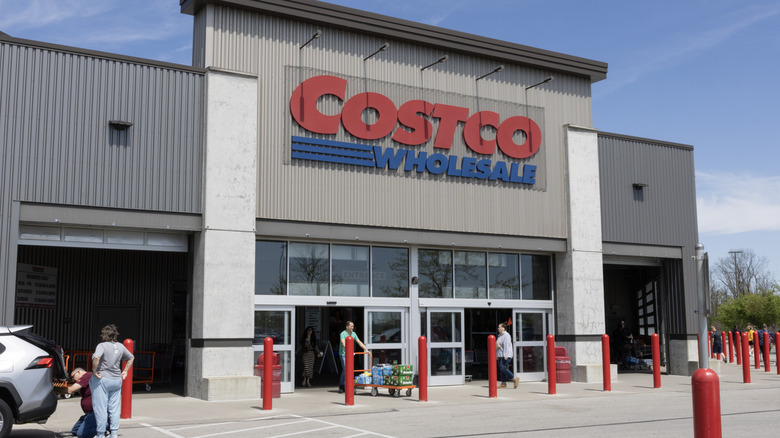What Does It Mean When A Price Tag At Costco Ends In 99?
Retailers like Costco plan every aspect of the shopping experience carefully — even its parking lots are designed to hack your brain. This extends to its pricing, with the endings of each product's price potentially conveying extra information about the product itself for those in the know. Costco's pricing structure was documented in a Business Insider article that asked long-time employees about store secrets, but it's been known about for many years prior. According to the article, products with prices that end in .99 are generally not subject to any special discounts or limited-time promotions. Instead, they're the regular price for that item set by Costco.
In contrast, an item with a price that ends in .97 is reportedly a clearance item, which will have been discounted from its original list price at Costco. These clearance items are only available on a temporary basis, and might not be there the next time you return to the retailer. However, before automatically assuming that any product with a .97 price ending is a great deal, it's worth checking the prices of the same product at other retailers. This is especially important for tech products like TVs, where price-matching can be tricky thanks to Costco's tendency to sell products with slightly different model numbers or different bundles to other retailers.
Costco's pricing structure is a deliberate sales tactic
Items with prices ending in .88 or .00 might also be worth looking out for. According to Business Insider, they can be signs that an item has been subject to a manager markdown. Reasons for such a markdown can vary — they could mean that the item is one of the last few in stock, or it could be a floor item or even a returned item that has been deemed as being in sellable condition.
While Costco has never officially announced its pricing structure, the fact that it remains an open secret among clued-in buyers is no accident. It forms part of what the Harvard Business Review describes as a "price vocabulary," which is a set of rules that conveys specific information to buyers who understand it. It's a good system for both buyers and retailers, as buyers can potentially save money by spotting products with significant discounts, while retailers can benefit from increased return trade from discount-savvy buyers.
Even the most dedicated Costco members will likely be able to name a few products they'd never buy again. Yet, if they feel like they understand a pricing system that most other shoppers don't, they'll probably still return even if they end up buying one or two duds every once in a while. That leaves Costco's executives happy and buyers happy — a rare instance where both parties can benefit from a retailer's marketing strategy.

